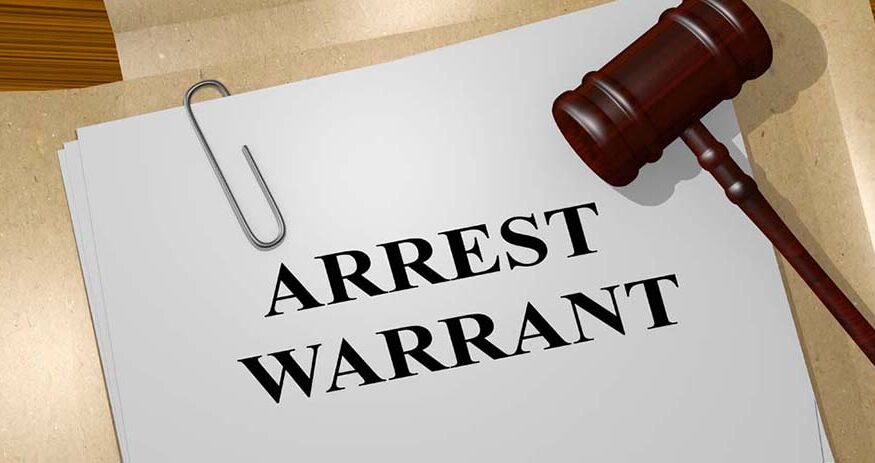Woman arrested on quashed warrant due to clerical error
By: Laura Brown//March 15, 2024//
A Minnesota woman was arrested due to a quashed warrant that remained active as a result of a clerical error. Although she was found with drugs on her person after a search pursuant to that warrant, the Minnesota Supreme Court ruled that the good-faith exception to the exclusionary rule does not apply to searches and arrests that arise from a quashed warrant if that warrant appears active due to court administration’s clerical error.
The Rice County District Court issued a bench warrant for Rebecca Malecha’s arrest on Nov. 12, 2020. Her attorney moved to quash the warrant on Dec. 11, 2020 — a request which was granted days later. Although uncommon, court administration made a clerical error. Even though the warrant was quashed by the district court, it appeared active in the database.
A Faribault police officer encountered Malecha in March 2021. Seeing an active arrest warrant from 2020, the officer confirmed with Rice County that there was an active warrant by consulting the national database and files at the Rice County Sheriff’s Office. Malecha was arrested on the quashed warrant.
During the search, methamphetamine was discovered on Malecha’s person. Malecha was charged with four controlled substances crimes. Citing the quashed warrant, Malecha argued that she was subjected to an unlawful search and moved to suppress evidence of the controlled substances.
The district court granted the motion to suppress, agreeing with Malecha that the exclusionary rule applied when the officers relied on information that was not updated by court administration. However, in a divided nonprecedential decision, the Court of Appeals reversed and remanded. It reasoned that the exclusionary rule did not apply since there was no police misconduct to deter; rather, the error stemmed from court administration, and the police merely relied on it.
Malecha’s counsel argued that a good faith exception, due to clerical error, to the exclusionary rule, would erode constitutional rights. “Enough nibbles will take away the meat of the pie. You have a protective measure in place against government encroachment. Very plain, very clear. People have the right to be free from unreasonable searches and seizures” said Melvin Welch, of the Welch Law Firm, LLC, who represented Malecha. “We know that an unreasonable search and seizure begins with one not having a warrant.”
Assistant Rice County Attorney Sean McCarthy insisted that the court staff made a critical error by backdating. “That should not happen,” McCarthy said. “When your court staff changes the court record, that impugns judicial integrity.” However, he maintained that no one knew that the warrant had been quashed.
The Supreme Court agreed that the court administration’s clerical errors resulted in the unlawful search. It also admitted that “separating the record-keeping practices of police from those of court administration is no easy task” given that technology use was rapidly evolving and ever-expansive. Ultimately, the court concluded that exclusion served the purpose of both deterring unlawful police conduct as well as unlawful government conduct.
The court reasoned that if government actors knew that negligently failing to communicate that an arrest warrant would result in evidence obtained pursuant to the warrant being excluded, government actors would be incentivized to act with greater care to avoid making errors.
“Applying the exclusionary rule here establishes that court employees, not only law enforcement officers, are held to account for errors that result in constitutional violations,” the court concluded. “Imposing the sanction of exclusion here promotes the public perception of fairness in the judicial process, particularly as illegally obtained evidence would otherwise be admitted by the same court system whose personnel caused the error that led to the unlawful search or seizure.”
While the court acknowledged that Malecha did have controlled substances on her person, it reasoned that a similar clerical mistake could have led to the search and arrest of an innocent person. “This hypothetical highlights the importance of deterring court errors, particularly in areas of substantial, interbranch coordination, like the warrant database.”
The court reversed the Minnesota Court of Appeals and reinstated the district court order which dismissed the charges. However, the court stopped short of announcing a broad rule that rejected the use of the good-faith exception under any other circumstances.
Legal News
- Wisconsin attorney loses law license, ordered to pay $16K fine
- Former Wisconsin police officer charged with 5 bestiality felony counts
- Judge reject’s Trump’s bid for a new trial in $83.3 million E. Jean Carroll defamation case
- Dozens of deaths reveal risks of injecting sedatives into people restrained by police
- The Latest: Supreme Court arguments conclude in Trump immunity case
- Net neutrality restored as FCC votes to regulate internet providers
- Wisconsin Attorney General asks Congress to expand reproductive health services
- Attorney General Kaul releases update at three-year anniversary of clergy and faith leader abuse initiative
- State Bar leaders remain deeply divided over special purpose trust
- Former Wisconsin college chancellor fired over porn career is fighting to keep his faculty post
- Pecker says he pledged to be Trump campaign’s ‘eyes and ears’ during 2016 race
- A conservative quest to limit diversity programs gains momentum in states
WLJ People
- Power 30 Personal Injury Attorneys – Russell Nicolet
- Power 30 Personal Injury Attorneys – Benjamin Nicolet
- Power 30 Personal Injury Attorneys – Dustin T. Woehl
- Power 30 Personal Injury Attorneys – Katherine Metzger
- Power 30 Personal Injury Attorneys – Joseph Ryan
- Power 30 Personal Injury Attorneys – James M. Ryan
- Power 30 Personal Injury Attorneys – Dana Wachs
- Power 30 Personal Injury Attorneys – Mark L. Thomsen
- Power 30 Personal Injury Attorneys – Matthew Lein
- Power 30 Personal Injury Attorneys – Jeffrey A. Pitman
- Power 30 Personal Injury Attorneys – William Pemberton
- Power 30 Personal Injury Attorneys – Howard S. Sicula












